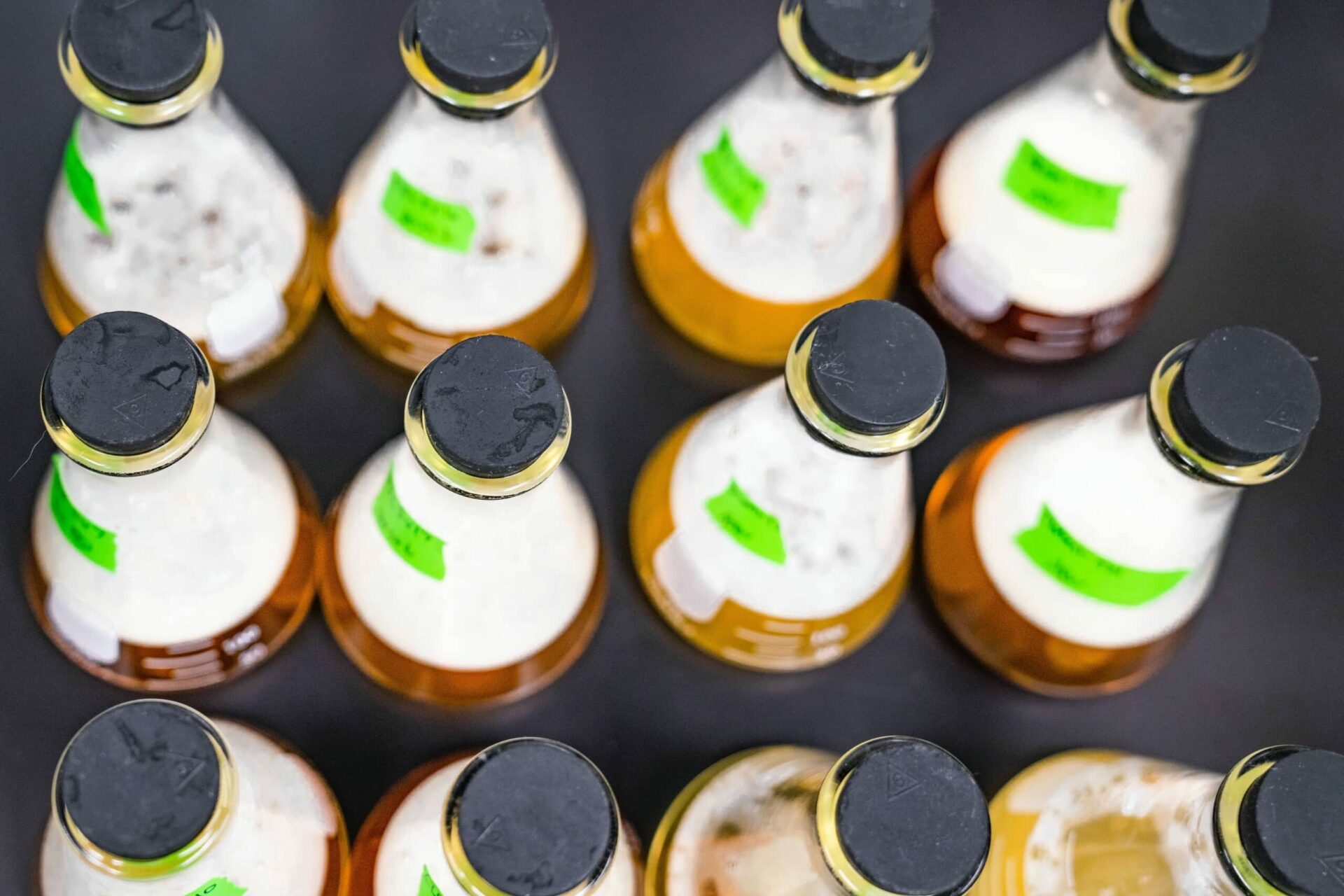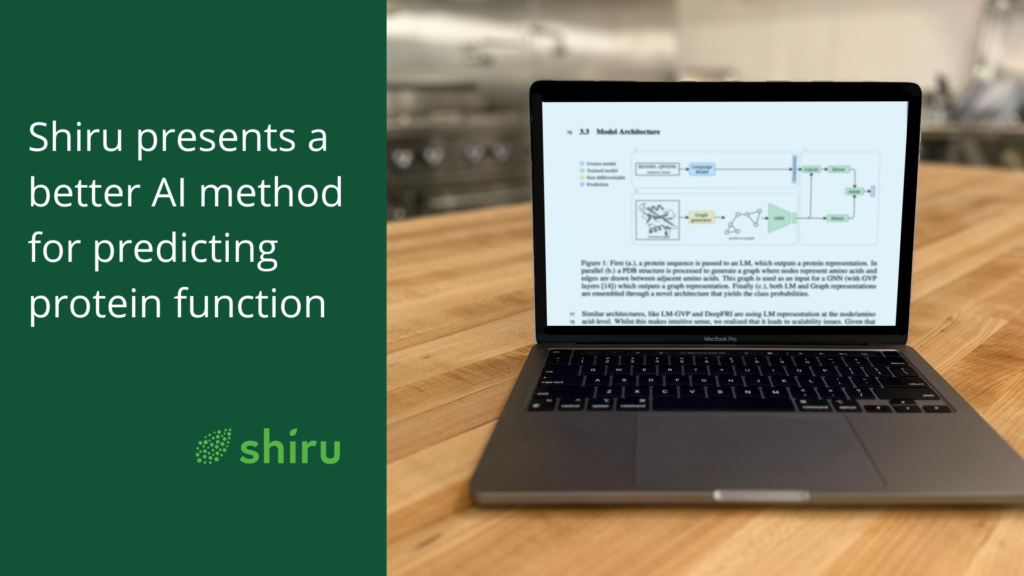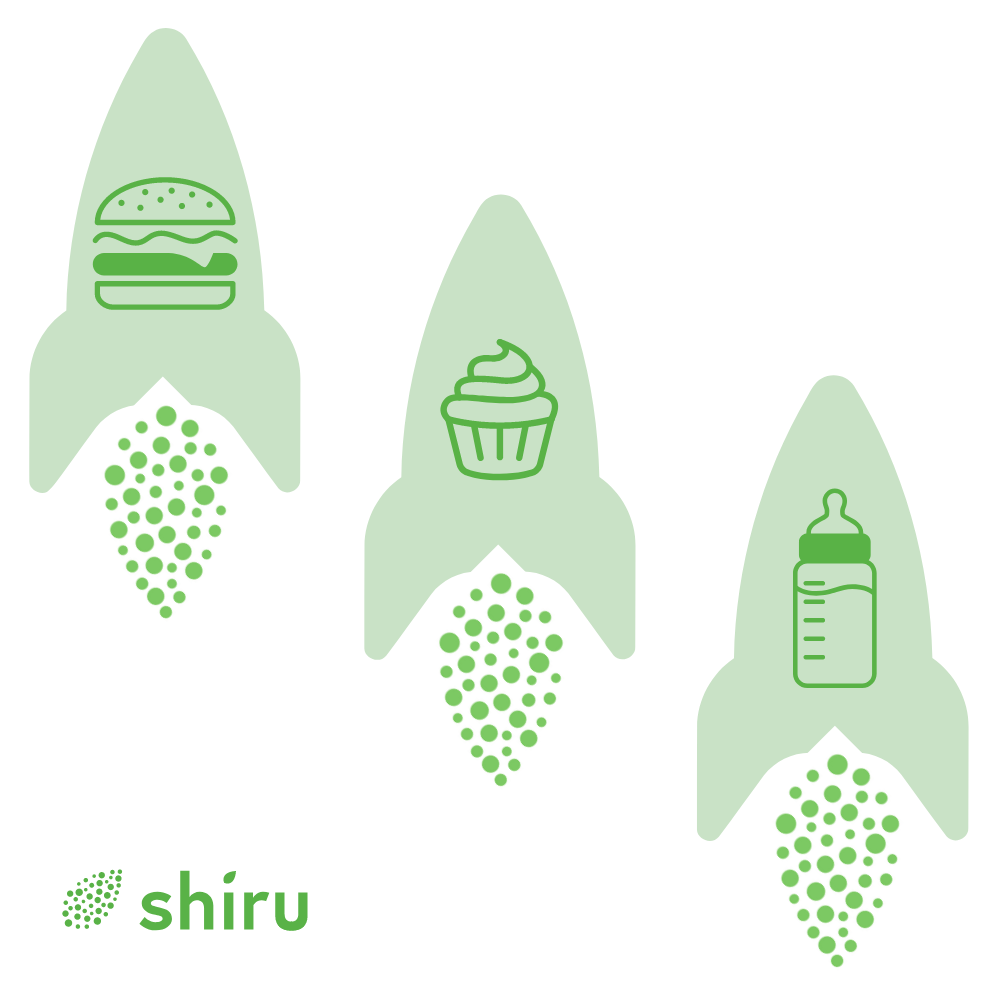Fermentation is the process by which living microorganisms break down organic compounds (i.e. sugars) into useful components.
One of the most well-known fermentation processes is used by beer and wine makers to convert sugar into alcoholic beverages (i.e. ethanol). But fermentation as a metabolic pathway is happening all around us. That sore feeling in your arms and legs after a tough workout? That is caused by lactic acid buildup in your overexerted and oxygen-lacking muscles, which is the result of your body “fermenting” lactic acid from sugar. This exact same fermentation process is what gives yogurt its “sour” taste. And in the last century, scientists have co-opted fermentation to guide cells to make a variety of products, from medicines to food ingredients to cosmetics.
To differentiate between general metabolic fermentation and product-specific fermentation, we use the term precision fermentation. In precision fermentation, microbes act as tiny cell factories and are directed to produce a specific product. The directions on what to make are provided to the microbe in strain engineering. After being engineered, the microbes are cultivated in massive quantities, often in the hundreds of thousands of gallons, and fed essential nutrients to sustain their growth. Once a critical mass has been reached, the target product is recovered and purified to yield a functional product.
There are several areas to consider when developing a precision fermentation process. Some of these areas include selecting the appropriate production microbe, optimizing the cultivation process (ex. determining carbon sources, growth times, additives), and scaling up the process (ex. going from the 10s of liters to 1000s of liters) (Humphrey, 1977). Effective collaboration between several teams, including fermentation, downstream processing, purification, and strain engineering, is necessary to take a precision fermentation process from ideation to completion.
There are many fermentation-derived products in our day to day lives. In the food space, current products made via precision fermentation include vitamins (ex. Vitamin B2), proteins (ex. enzymes lipase and chymosin), and flavoring agents. Furthermore, compared to industrial agricultural methods (factory farms, crop fields), fermentation uses significantly less land, water, and energy while being more diverse in the input materials and target products (GFI, 2020). Similarly, precision fermentation removes animals from the equation. As mentioned, chymosin (a key rennet enzyme used in cheese production) is produced at scale via fermentation. Traditionally, it was extracted from the stomachs of cows and has since been commercialized as a fermentation-derived animal-free product in the 1980s (Waschulin & Specht, 2018). Known as “vegetarian rennet,” it is now used to make 90% of the processed cheeses produced in the US – a huge success for precision fermentation (Johnson & Lucey, 2006; GFI, 2020). A very recent example is Impossible Foods’ use of precision fermentation to generate their heme protein for their products via engineered yeast, Pichia pastoris.
At Shiru, we have created a scalable alternative protein discovery platform that utilizes precision fermentation to produce and scale-up our novel ingredients. We take advantage of microbes’ ability to quickly and robustly produce a wide variety of proteins of interest compared to traditional methods of finding them in nature.
References
- Humphrey, A. E. (1977). Fermentation Technology. Chemical Engineering Progress, 73(5), 85–91. https://doi.org/10.1080/00960845.1966.12006119
- Johnson, M. E., & Lucey, J. A. (2006). Major technological advances and trends in cheese. Journal of Dairy Science, 89(4), 1174–1178. https://doi.org/10.3168/jds.S0022-0302(06)72186-5
- The Good Food Institute. (2020). State of the Industry Report – Fermentation: An Introduction to a Pillar of the Alternative Protein Industry.
- Waschulin, V., & Specht, L. (2018). Cellular agriculture: An extension of common production methods of food. The Good Food Institute. https://www.gfi.org/images/uploads/2018/03/Cellular-Agriculture-for-Animal-Protein.pdf




